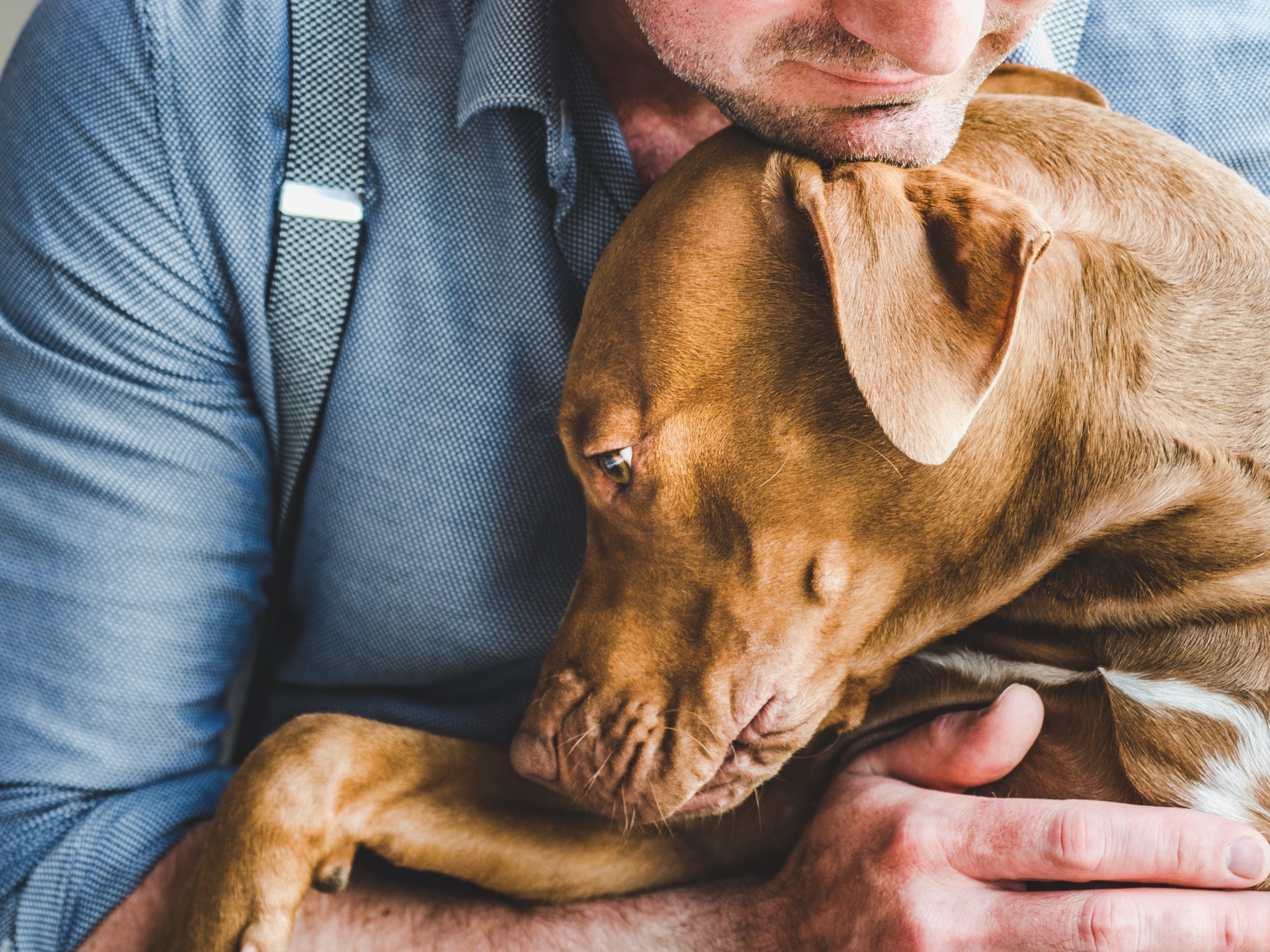Dogs show signs of grief when canine friends die, study shows
Signs can include eating less and being more fearful

The death of a dog is always a sad time, but a new study has found that if you have two dogs, the loss can be just as upsetting for the surviving canine.
Researchers from the University of Milan found that dogs show “key signs of grief” following the death of another dog in the same household.
The study of 426 dog owners in Italy, which was published in the journal Scientific Reports, is the first to confirm that dogs can feel grief.
It found that attention seeking was the biggest sign a dog was grieving, with 67 per cent of owners reporting this behaviour following the death of another dog they owned.
Other signs owners noted included playing less (57 per cent), being less active (46 per cent), more fearful (35 per cent), sleeping more (35 per cent), eating less (32 per cent) and more barking and whining (30 per cent).
The owners were surveyed on their own levels of grief after the death of a pup, and were asked about their surviving dog’s behaviour and the relationship between the two canines.
The majority (86 per cent) of owners reported negative changes in the surviving dog’s behaviour.
A third of these (32 per cent) said these behaviours lasted between two to six months, while a quarter (25 per cent) said it lasted longer.
The study authors found that it didn’t matter how long the two dogs lived in the same household, the death of one still affected the other in the same way.
Lead author Dr Federica Pirrone said that if you think your dog is grieving you should stay close and “make them feel protected”.
She told MailOnline: “As mentioned in our study, a surviving dog’s changes in behaviour were greater when they had a friendly or even parental relationship with the deceased one. Most likely this means that the surviving dog has lost an attachment figure, who provided safety and security.
“Therefore, making this dog perceive that they are still supported and protected can be extremely helpful.”
Join our commenting forum
Join thought-provoking conversations, follow other Independent readers and see their replies
Comments
Bookmark popover
Removed from bookmarks